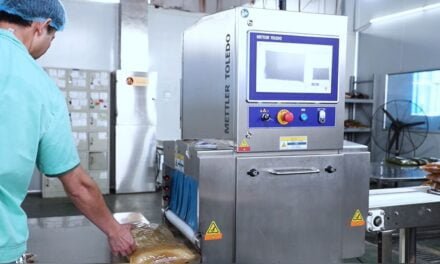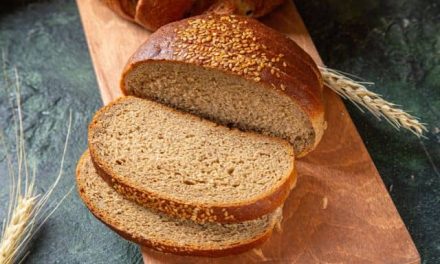Starting and managing a successful bakery business requires a combination of culinary skills, business acumen. Management of bakery business is both rewarding and challenging. K. B. Kamaliya offers some practical tips to help you effectively manage your bakery business.
Table of Contents
Starting and managing a successful bakery business requires a combination of culinary skills, business acumen, and customer satisfaction. Managing a bakery is both rewarding and challenging. By implementing these practical tips, you can enhance your bakery’s success and reputation in the competitive food industry. Here are some practical tips to help you effectively manage your bakery.
Production Management in Bakery Business
Each member of the bakery team will have a sense of purpose. It is therefore necessary to consider how the bakery production personnel fit into the whole structure of production management. That is shown in a diagram titled “Organisational setup (figure-1). It would be best to consider the functions of the various personnel on the production side and specify the duties of each. That are :
Production Manager:
He is responsible for all the production activities of the bakery, the efficient operation of the plant, the quality of the product, the maintenance of good yields, the economic use of labour, the development of new lines of production, the prevention of wastage of ingredients and losses due to spoilt or damaged product.
Assistant Manager and/or Night Manager:
He has to assist the production manager in carrying out all his duties and taking responsibilities for certain sections of the work, if such are delegated to him/them.
Purchase Officer:
He is responsible for the purchasing of all commodities required in the bakery.
Store-Keeper:
He is responsible for keeping stores and stock records. The record is checked by an assistant manager/purchase officer. He has to check all the material received into the lofts and supervise their stacking and supply.
Foreman / Supervisor / Shift Incharge:
The foreman is responsible to the production manager for all the production activities during his shift. He has to supervise the production at the various stages of manufacturing. The foreman has to control the duties of his team of operatives.
Assistant Supervisor / Charge Hand:
He is the second-in-command to the foreman of the plant and takes charge in the foreman’s absence.
Dough Maker:
He is responsible for the making of regular doughs by proper weighing, sifting and blending of the flour and correct scaling of all other ingredients, cleaning of working premises etc. He has to make a record on his dough sheets of all ingredients used in production.
Assistant Dough Maker:
This man assists the dough maker at (particularly at break periods) and knocks back the doughs at the prescribed times.
Flour Runner:
The flour runner’s main duty is to supply the flour into the flour blender from the lofts in accordance with the production manager’s instructions. He is also required to operate the sack-cleaning plant, if at all installed.
Divider Man:
He is responsible for controlling the feed of the dough into the divider and for the correct working of it. He should see that regular weights are maintained.
Final Proover Feeder:
He has to check the tinning of the dough. He has to be very careful when changing over the type of production.
Oven Cleaner:
He is responsible for taking the bread from the tins carefully in order to avoid damage.
Baker / Table Hand:
He is responsible for the operation(s) of moulding, scaling, handling of the dough, feeding an oven(s) with full or empty tins, or in clearing an oven(s) etc.
Skilled Baker:
He is employed where a proportion of fancy shapes of products are made and in the production of which hand-manipulation is necessary. For small scale units, he is in a key position.
Personnel Management in Bakery Business
The art of managing personnel is to weld individuals together by the systematic organisation into a productive group. This is only possible by confident leadership born of competence, respect, and goodwill.
The following are some tips :
- He should remember that respect comes due to self-control and an honest sense of responsibility. Both lead to good judgment and the ability to make prompt decisions.
- He should win goodwill and should remember that all members of the staff are human beings, no doubt some, are easy-going while others may have more complex characters. If a humanist approach is followed then, the successful manager need not use excessive authority, his requests will be carried out and there will be no need to issue orders, except perhaps in an emergency.
- He has to take interest in workers’ welfare. It generally brings a ready response and encourages approachability.
- A sense of humour is a wonderful lubricant but the people cannot laugh at the same time.
- He should not use foul language as it never solves a problem but only complicates it.
- Gossip will sabotage good relations and cloud a happy atmosphere.
- A word of praise, when it is earned pays good dividends.
- When criticism is necessary, it should not be used as an opportunity for self-aggrandizement before an audience.
- He should keep the matter between himself and the person concerned.
- A good manager should make the best use of the worker’s ability.
- The competent manager should deal with problems promptly before these become complicated or serious problems.
- Any action is taken only after careful thought has its effect on any individual or group, and ultimately on production.
- He must ensure that any operation should be successful without serious repercussions.
Error & Loss Management in Bakery Business
The error and losses in production and/or merchandising pay a lot of production and management costs. Hence it should be necessary to study that in-depth for a business owner/manager.
Error in Production and Merchandising:
A number of common errors may be found in the production and merchandising of bakery products. It is possible that all these errors would not be found in one business. But even any one of the errors might appear and become a crucial factor in establishing whether a business is successful or not. Few remarks about them seem appropriate. Some of the more common mistakes which can easily be remedied as follows:
Purchase:
A good product can be made only from better quality ingredients. Hence, purchasing cheaper or inferior ingredients due to a lower price could be the wrong decision.
Storage:
The ingredients should be properly stored for a reasonable period.
Stock room:
Sanitation is an important aspect of the baking industry. Government inspectors are becoming more and more strict and rightly so. Information is available pertaining to bakery sanitation. The baker should use this information. Employees should be made sanitation conscious.
Book-keeping & costs-selling price:
The baker must not only know costs of his material but also production, sales, packaging, overhead etc. A set of books must be kept. If unable to do this himself, help must be obtained to do this very important work.
Window display:
Merchandising is an important phase. Information that is helpful to sell the products should be made available. This may be obtained from books, trade journals and members of the allied trades. Conventions and trade meeting offer an excellent source of information.
Weighing:
Good scales should be purchased and should then be kept in good working order. A serviceman of the manufacturer should periodically check the scales and make proper adjustments or repair them when needed. This is also necessary to comply with government laws.
Lighting and Ventilation:
Good lighting and ventilation is essential for better working conditions because that will result in better workmanship. Baker may contact electric companies to solve lighting problems. In addition to that shop and salesroom should maintain the controlled temperature so that employees and customers like to work or shop in bakeries where conditions are pleasant. Air-conditioning manufacturers can help the baker in purchasing the proper equipment.
Equipments & Machineries:
Equipment, whether in the shop, salesroom or for delivery should be efficient and of the type that requires minimum time and expense to operate properly. Conventions, trade meetings, from allied trades and trade journals can be good sources for such information. Checking with other bakers is also very helpful.
Leadership:
Without good leadership it is impossible to operate any business. The baker has three very important functions to perform i.e. purchasing, producing or manufacturing and selling. Each is a job by itself. Time, effort and money must be expended in order to become efficient in any one or all three phases.
Workmanship / Interest:
Poor workmanship is often observed. It may be due to lack of interest both within the shop and in the store. Employees should be proud of the products they make or sell. It is the duty of management to keep everyone involved at his best. Every one should do his best possible job.
Knowledge:
The baker should have a good knowledge of ingredients and must know how to use them. He should be familiar with the various mixing procedures used in making the large variety of products produced in the bakery. Knowledge of ingredients mixing and even temperatures and baking time is important.
The Control of Visible and Invisible Losses:
The losses that occurred in the bakery business may be conveniently divided into two classes: invisible losses and visible losses. Invisible losses are those which are hidden and not obvious without investigation, such as fermentation and evaporation losses from the dough. Visible losses are those which are quite apparent as they occur such as during makeup in the shop, oven and wrapping and packing cripples as well as plant stales. The maintenance of accurate records in the bakery is the only way in which the visible and invisible losses can be actually recognized and controlled factors responsible for these losses.
Hence, the principal losses which occur while processing should be investigated and controlled as discussed below:
Mixing:
The individual dough must be mixed according to a definite formula. The weight of the dough out of the mixer should agree closely with the total weight of the ingredients in the formula. The high mixing loss could be avoided by careful removal of dough from mixer, correct weighing, recording or absorption and proper care of scales and weights.
Fermentation:
Carbon dioxide and alcohol vapour produced during fermentation are driven off into the atmosphere while punching, resulting into 0.5 to 1 % reduction on dough weight, termed as “True Fermentation Loss” The excess loss may be due to more moisture evaporation from dough during fermentation. That can be checked by proper control of temperature and humidity in the dough room, short fermentation time, cool dough temperature and reduction in the number of times a dough is punched or folded over.
Dividing / Scaling:
Normally each dough piece is 12 % heavier than that desired for final weight. Therefore, one should set the standard weight of the dough, and then see that it is maintained properly. If there is shortage in number of dough loaves delivered from Divider it could be due to dough left in trough, or divider, Dough cripples while dividing and scaling or errors in scaling.
Moulding and Panning:
Dough loaves are sometimes crippled in the moulding machine or during panning in a similar way to those produced during dividing and scaling. Due caution should therefore be exercised.
Pan Proofing and Oven Loading:
Dough loaves are sometimes crippled in the proof box if the humidity is excessive, resulting in the condensation of water, which drops on the top of the dough causing unsightly spots. Furthermore unless care is taken in transferring the dough loaves into the oven some of them may be knocked down and so get crippled.
Baking:
Loaves are often crippled during baking by being burned in the oven or by wild irregular bursts in the oven which result in deformed, unsymmetrical loaves that are unsalable except for the feed industry. Oven cripples can be largely avoided by proper regulation of the oven temperature & steam and also by maintaining the proper conditions during pan proofing.
Wrapping and Packing: Loaves that are damaged in the wrapping machine or crushed during packing should be recorded as such and the proper steps are taken to prevent the continuance of such cripples.
Marketing Management in a Bakery Business
The retail bakers are now facing stiff competition. People have more inclination to buy more and more bakery products bearing brand names. Therefore it has become an essential part of the business for even retailers to deal with quality in all aspects of business, not only in the finished products but also in sales, management, and customer relations. The baker should bear in mind the following suggestions:
Products: The retail bakeries are in a better position to manufacture a variety of baked goods. They can instead of manufacturing just a common type of sandwich bread or simple bread, produce more of open-top bread, hard crust bread, whole mill bread, brown bread, milk bread etc. They can offer different varieties of bread, that attracts the people to buy more bread because, in comparison to simple bread, these breads are tastier. However, these varieties demand a little more baking skill. Similarly, there are no limitations in the preparation of sweet dough goods, cakes, pastries and cookies etc. With a little imagination and the acquired skill bakers can formulate their own recipes as well as the designs of the products to attract the customers.
It is imperative that baked goods should always be fresh. Loss of sales is caused by the fact that people do not eat as much of stale bakery foods as fresh.
Prices and the quality of the baked goods should be according to the class of people in the neighborhood where the bakery is situated.
Make a special corner for children’s goodies having attractive and colourful delicacies which may attract youngsters.
The Premises / Stores:
All products must be labeled with name, quality & price and displayed in the showcase, jars, or trays in such a way that customers can read them clearly. This will help customers to budget according to their needs. However, for more attraction one may add nutritional facts, raw material used, natural products used in the label.
The premises should be well lit. A well-lit shop gives an open invitation to the customers.
Sanitation also plays an important part to catch eye appeal. Hence :
- The selling area therefore should be free from flies, ants, cockroaches and other insects
- Floors and walls should be clean and nicely maintained
- The packaging material should be properly stacked
- The bakery store should not have any undesirable smell. There should be an aroma of fresh baked goods.
- The store should not be too cold in winter or too hot in summer. A cozy atmosphere will attract more customers.
Arrangements of the stores displays should be appealing and eye-catching. The window should be dressed according to seasonal specialties. Displays in the show windows should be changed periodically to attract the attention of the customers. Soiled paper doilies and dirty baking pans should not be displayed in the show windows. Window panes should be brightly polished to give a perfect impression.
The Sales Personnel:
Not only should products be good but sales personnel should be equally efficient. They should be provided with an appropriate, clean uniform. They should properly clean hands and properly dress hair.
At no cost should the sales staff have a superiority complex or show indifference to the customers. A pleasant appearance balanced with good manners will be an additional asset. The staff should be properly oriented in relation to the makeup methods of merchandise.
The sales staff should not be over-enthusiastic in selling additional items. Neither should they be slow in serving the customers, nor should they wait on a customer out of turn but be quiet enough in serving.
The sales staff should also follow the proper etiquette. They should use metal tongs or tissue paper for picking up cakes, cookies etc. They should not pickup goods after it has fall on the floor and then replacing with others. All the packages should be neatly wrapped. The shop helper should never enter the stores when not presentable in appearance.
Creative Thoughts:
In addition to the above mentioned standerdised selling tips the following attractive tricks can also be utilized :
The shop should prepare a display board showing each day’s specialty prominently. e.g. Today’s special, Hot Breads Available etc. It should make gift packs to attract the customers who buy in bulk for gifting purpose. e.g. Cookies / Biscuits in a box is to be packed in an attractive wrapper. The sales staff should actively promote sampling by giving new items to customers for tasting so that customers buy more. On the occasion of festivals proper decoration with streamers, balloons & colourful stars is desired.
Financial Management in Bakery Business
Book keeping is the foundation on which the whole fabric of modern commerce rests. Though there is no legal obligation on ordinary traders to keep the records, they find it essential and convenient to keep a systematic records as a part of a successful business. The exact system of accounts to be operated will depend, of course, on the size of the shop and whether it is a wholesale or retail business. There are certain fundamental principles to be followed by every baker in order to be successful. These are known to any accountant. Therefore, only specific registers are discussed in this article, which will be helpful to maintain the day to day record for production. Otherwise, sometime a baker may misuse the raw material, misplace the product on sale product directly, or the loss / brunt material / product may not be noticed by the owner and so on.
Indent Form / Register:
A baker should enter the requirements of ingredients and other materials that are necessary for the next day’s production. The storekeeper will issue the materials as per the demand. Normally, this transaction is made at the end of daily production. In addition to that, the unused material also weighed, noted, and compensated with the total requirement of the next day.
That will show how much material is used on that day. This is an important task. Because, sometimes a baker notices that some material is not in stock at the time of starting to prepare the product, hence the product cannot be produced within the specified time limit. In such circumstances, if the storekeeper knows well in advance about the requirement he can purchase it from the market and that can be possible by keeping an indent register. It is maintained on day to day basis.
Store Register:
In this register, the number of materials issued from stores recorded separately according to chronological order. Moreover, the material purchased, disposed of etc. are also recorded in the same manner. It gives a perfect idea about the exact stock readily available in the store. This register is recorded/maintained by the storekeeper. On the base of this register the store conditions can be promptly known and the quantity of material is to be purchased can be estimated directly i.e. indent register shows the requirement of 100 kg flour for next day production and store register shows 50 kg. balance of the flour, it means 50 kg. flour is to be purchased, that can easily known from register itself, otherwise the actual quantity of flour is to be estimated by weighing which requires much time & more labour.
Production Register:
The number of ingredients used for each and every product and the production obtained from the same is recorded in this register. From this register, it can be estimated that, whether the quantity of the product produced is as per the number of ingredients used or not. Moreover, whether the number of ingredients is used as per the formula or not and if any mistake (regarding more or less use of ingredients) found, it can be corrected. The register is maintained by supervision / skilled labour.
Sales Register:
It is maintained by a clerk. It is mainly maintained in all the industrial units. But for bakery units one can make a special type of register as per the specific Performa. In this register, product issued for sale, actually sold items, its rate and income are recorded daily.
Labour/Employee Wages Register:
It is useful to record the payment made to the employee. It is maintained by supervisor/administrator / accountant.
Good management can be summed up as competence, co-operation, and common sense.
Reference
- Dubey S.C. (2000). “Basic Baking”, Pb. Dubey S.C., New Delhi.
- Kamaliya M. K. and Kamaliya K. B. (2001). Baking Science and Industries, Pb.
- M.K.Kamaliya, Anand.“School of baking”, Gujarat Agricultural University, Anand.
If you found this article valuable, you may wish to receive our print version regularly. Subscribe now to receive the latest updates.

















